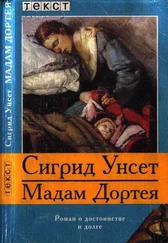Cole doesn’t think PW would bless a marriage like that.
“Think Jesus cares how many IQ points you got?” Pastor Wyatt asks his congregation. “Remember, in this world the sharpest knife in the drawer could well be Satan.”
Cole has noticed that people in Salvation City don’t talk much about college. And he has noticed that a lot of parents don’t seem all that concerned about how much their children know about things like square roots or medieval times.
“I’m totally down with the idea that I’m not gonna grow up,” says Clemson Harley, a boy who, though a whole year younger than Cole, has already been allowed to preach (causing Cole, who has no desire whatsoever to preach, to suffer attacks of envy).
Cole doesn’t care if he never goes to college, but he finds it hard to accept never getting to be a grown man. He’d been in a hurry to grow up for as long as he could remember. Not that he is sure what he’d do with himself as an adult, besides create comics. PW says that between Cole’s desire to explore the world and his devotion to the Word, he has the makings of a missionary. Cole knows this is something he will never be, but because he also knows that this is PW’s highest compliment, it makes him happy.
Cole has been living in Salvation City for about four months when, one day, on their way downtown to get haircuts, he and PW stop for gas. The gas station is next to a convenience store. While PW is filling the tank Cole drops into the store for a Coke. When he comes back out he glances up the road and sees a man running in their direction. Cole stands still, waiting for the man to get closer, his heart inching its way up his throat.
The same height and weight, the same tan and orange running suit, the same powerful but easy stride. Cole cannot believe his eyes, nor can he stop the bolt of maniacal joy that knocks the soda can from his hand. And then the man is there, the man is running right by him.
“Let’s go, son.” Cole thinks PW hasn’t noticed anything, but when they have driven about a mile he asks very quietly if Cole is all right. Cole says nothing; his throat is still blocked. “It’s okay, you don’t have to say.” PW reaches for Cole’s hand. “It’s not just you, son,” he tells him. “Everyone sees dead people.”
BOOTS LUDWIG, owner of the local radio station and creator and host of Heaven’s A-Poppin’! , wanted Cole to be on his show.
“I want folks out there to hear your story.”
PW agreed that anything that brought attention to the plight of orphans was a good idea.
The flu had hit most children’s homes hard, but for every empty bed there was a long waiting list of new orphans, and while they waited they slept on the floor. In most cases, there wasn’t enough staff to care for half the number of children they already had. (With the flu, the large pool of volunteers had evaporated.) Food, blankets, and medicines were also in short supply, and for lack of these things, even once the flu had waned, children died.
At the height of the pandemic, thousands of young children began showing up, sometimes without so much as a slip of paper to say who they were. Identifying and reuniting them with surviving family would take time; in some cases it might not even be possible. Those who’d grown up in the homes, or who’d been there a while, often hated the newcomers. Very quickly some homes began to resemble those Dickensian hellholes of people’s fears. The worst were almost perfect replicas of the vicious world of adults behind bars.
But real bars, at least, would have protected the children from the outside. In a real prison, a stranger would not have been able to walk in off the street, slip a baby girl into a pillowcase, and carry her off with him.
And a real prison would not have been so easy to escape. But, alone or by twos or in groups, children trooped out of orphanages every day. When they did, the best thing that could happen to them was to be caught and returned (in fact, many returned voluntarily). Usually such children went unpunished, but to help discourage others from taking the same risk, runaways were sometimes asked to tell their stories. And there were children who would have done so but found they could not; they could not find the words. (Some had lost the ability to speak at all.)
The pandemic had caused major interruptions in the production and distribution of goods, and that included the illegal ones. At the same time, it had created hordes of unprotected boys and girls. As a growing number of these children—many more girls than boys—began to disappear, it was clear that they were falling into the hands of human traffickers, whose own numbers kept growing now that other illegal trades, like drug dealing, had become much harder to ply. Evil, too, has to eat. The traffickers kept their eyes on the children’s homes, and runaways were sometimes overtaken within yards of their own front door. Sometimes the foxes didn’t wait for the chickens to fly the coop. In Boston, a man, his wife, and their teenaged daughter all volunteered to work in the same children’s home with the purpose of procuring minors for a porn ring.
Long after the last case of pandemic influenza had been diagnosed, the bodies of young people would keep turning up, victims of hunger, exposure, various infections, murder, and (more and more) suicide. But the pandemic had inured people to the sight of young corpses. Far scarier to many Americans were the living: kids of all ages who’d banded together and were surviving by their (criminal) wits, often under the head of one or more nefarious adults. Fierce and sometimes murderous gangs that had come to menace every city and suburb and many small towns, where they often outnumbered police.
In the wake of the pandemic, there was no shortage of places to hide out or squat. Houses and buildings and sometimes entire streets stood abandoned. The flu had even turned some rural villages into ghost towns. There were plenty of ordinary citizens who’d survived the virus but whose lives had been ruined by the pandemic in one way or another and who now found themselves squatting side by side with criminals. Those who’d seen the slums and shantytowns and refugee camps in countries crushed by warfare or poverty compared the new settlements to such places.
Though their house, like their income, was small, Pastor Wyatt and Tracy would have liked to take in more than one child. But, as Tracy put it: “The authorities keep banging us into walls.” In fact, they now considered it a miracle they had managed to get Cole. Even in his case, there’d been so many questions and hesitations that Pastor Wyatt had lost his temper—only to be shouted down by a child welfare official who informed him that, bad as things were, they weren’t so bad yet that people could just drop in and pick out a kid like a puppy.
“And let’s face it,” he told Pastor Wyatt unapologetically. “It wouldn’t exactly be the first time a man of God turned out to be a you-know-what.”
Boots Ludwig, though he was past seventy and had eighteen grandchildren, wanted to adopt “a whole football team and all the cheerleaders.” He spent a lot of broadcast time thundering against the system. “Let my children go!” It was a matter of urgency in more ways than one: many of the orphans were unsaved.
“If it weren’t for those godless pigheaded fools, we could get those kids right with God before it’s too late.” In which case, they would be spared the great tribulation.
Boots Ludwig liked to say the reason he loved radio so much was that he was too ugly for television. In fact, it wasn’t so much that he was ugly as that he looked as if he’d been slapped together in a rush: one of his shoulders was higher than the other and he had tiny dark eyes, like coffee beans, stuck unevenly on either side of a nose that had been broken in boyhood and had healed askew. He always dressed Western, from the boots that gave him his nickname to his hat, and he wore several chunky rings, like brass knuckles, on each hand. Of all the people Cole had drawn, drawing Boots was the most fun. PW said Boots was only joking about the reason he preferred radio. The truth was, both men regarded it as the superior means of spreading the Word.
Читать дальше













